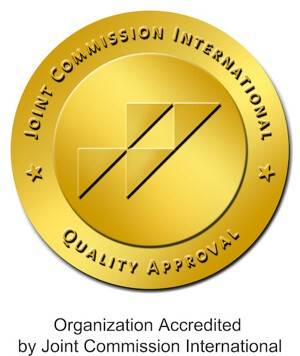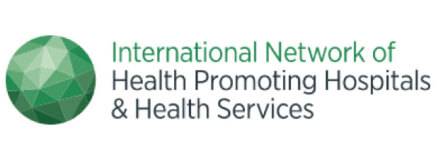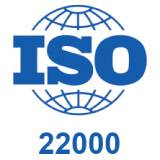.jpg)
Your heart will go on – with good cardiovascular health
Why and how should we keep good cardiovascular health
Blood pressure is a vital sign of health but its significance may not be easily noticeable. High blood pressure, or hypertension, seldom causes symptoms until complications develop and that is why it is considered a “silent killer”. Extremely high blood pressure may cause symptoms like dizziness, visual disturbance, headache, fatigue and facial flushing.
According to the American Heart Association, normal blood pressure should be less than 120/80 mm Hg. A little lower or a little higher is acceptable and the numbers may fluctuate throughout a day.
However, once the systolic reading consistently ranges from 120-129 mm Hg, one should be more attentive to his/her own condition. When the reading consistently ranges from 130-139 mm Hg systolic or 80-89 mm Hg diastolic, it is considered hypertension. The higher blood pressure you have, the higher the risk of you suffering from health issues related to heart, brain, kidney or blood vessels. Lifestyle changes and medications are likely to be prescribed to improve the situation.
While hypertension can be a fatal condition, no specific cause can be identified in over 90% of cases. Possible factors which put a person at risk of hypertension include high salt intake, obesity, having a sedentary lifestyle, smoking, heavy drinking, inadequate sleep, stress, family history of hypertension and increasing age. On the other hand, a small minority of patients, hypertension is caused by specific causes including kidney diseases, endocrine diseases and some drugs.
Regular blood pressure self monitoring
Periodic checks for blood pressure can detect hypertension early and complications can be prevented if hypertension has been managed properly. Indeed, it’s rather easy to stay away from hypertension, too. By having a balanced diet with low salt intake, doing exercise regularly, avoiding obesity, quitting smoking, refraining from excessive alcohol consumption and managing stress, a healthy lifestyle is an effective way to prevent hypertension.
If your blood pressure readings exceed 180/110 mm Hg, you should sit down and relax. Blood pressure should be retested 5 minutes later. Sustained unusually high readings is a dangerous sign that you should seek immediate medical advice. There is a risk of hypertensive crisis requiring urgent medical attention. Meanwhile, if you are experiencing chest pain, back pain, headache, shortness of breath, numbness, weakness, change in vision or difficulty in speaking, call for emergency services immediately because those are signs of possible organ damage.
Regular exercise helps to improve blood pressure
The American Heart Association and European Society of Cardiology encourage individuals to exercise regularly in order to reduce risk of heart diseases. Studies have shown that aerobics exercise and resistance training help reduce blood pressure. Anyone aged 18 or above without contraindication to physical activity is encouraged to participate in moderate-intensity aerobic physical activities, like walking and social dance, for at least 150 minutes, or vigorous-intensity aerobic physical activities, like running and cycling, for at least 75 minutes a week. Doubling it can bring even greater health benefits. Muscle strengthening exercise involving major muscle groups should also be arranged at least twice a week.
Some elderlies may not be able to do the recommended amounts of exercise. They are encouraged to stay physically active as far as their abilities and conditions allow. For children and the youth, they are recommended to engage in moderate- to vigorous-intensity physical activities at least 60 minutes per day for better health.
Healthy diet to reduce blood pressure
Healthy diet is also essential to maintain a good blood pressure level besides staying active. The National Heart, Lung and Blood Institute (NHLBI) in the United States has been advocating a diet that helps prevent hypertension and suppressing the risk of its complications, namely, Dietary Approaches to Stop Hypertension (DASH). Studies have shown that a DASH diet can lower blood pressure in as little as 2 weeks. It can also reduce low-density lipoprotein (LDL or “Bad”) cholesterol levels in the blood. A DASH diet helps to reduce these 2 major risk factors for heart disease.
In a DASH eating plan, there are few principles to follow:
- Lower in sodium intake
- Rich in potassium, calcium, magnesium, fiber and protein
- Low in saturated and trans fats
- reduce sugar intake, sugar-sweetened beverage and sweets
Dash eating plan emphasizes eating vegetables, fruits and fat-free/low-fat dairy products. Diet composed mainly of whole grains, fish, poultry, beans and nuts is recommended in a balanced way. Restricting sodium intake is in top priority. Daily sodium intake should be less than 2,300mg in standard DASH diet. A lower sodium version of the DASH diet restricts sodium to 1,500mg a day and can have a better blood pressure lowering effect. Therefore, using sodium-free spices/herbs/flavoring instead of salt and not adding salt when cooking rice, pasta or hot cereal helps to reduce sodium intake. Choosing food with low sodium content according to the food label and consuming less canned food, processed food or preserved food also helps.
When following DASH, it is important to choose foods that are rich in potassium, calcium, magnesium, fiber and protein. 4-5 servings of Nuts, seeds and legumes every week are recommended. One serving is 1/3 cup nuts, 2 tablespoons seeds, or 1/2 cup cooked legumes (dried beans or peas). Fish and poultry is preferred. Fat or skin on poultry/meat and full-fat dairy products should be avoided in order to reduce saturated fat intake. Food with trans-fat e.g. cookies, pies, margarine, non dairy coffee creamer should be avoided.
Frequent self blood pressure monitor, regular exercise and healthy diet are the key elements to improve blood pressure control and reduce risk of heart disease. Regular checkup is also a highly effective preventive measure. Nevertheless, the DASH diet may not be compatible with personal needs. It is always best to consult a doctor and a nutritionist for personal nutrition and lifestyle advice.
Please act now!!! Your heart will go on with the lifestyle modifications.
Source:
National Heart, Lung and Blood Institute
American Heart Association
European Society of Cardiology












